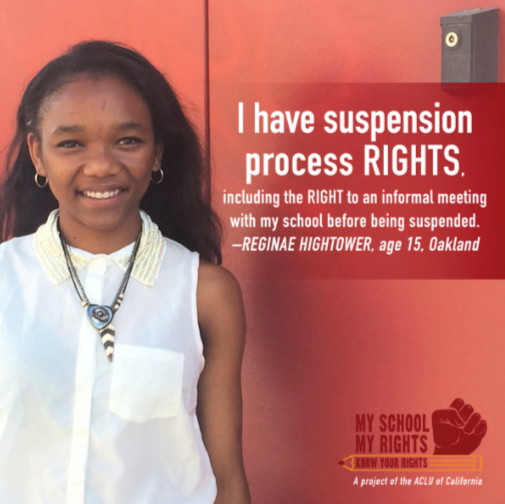
Dear Commons Community,
The New York Times has a featured article this morning entitled, “How Educators Secretly Remove Students with Disabilities from School.” The removals termed “informal” or “off-the-book” largely escape scrutiny because schools are not required to report them in the same manner as formal suspensions and expulsions, making them difficult to track and their impact hard to measure. The article also includes several case studies of students who were “informally” suspended. Here is an excerpt.
“In a report last year, the National Disability Rights Network, a national nonprofit established by Congress more than four decades ago, found informal removals occurring hundreds and perhaps thousands of times per year as “off-the-book suspensions.” The report said the removals also included “transfers to nowhere,” when students are involuntarily sent to programs that do not exist.
But interviews with families, educators and experts — as well as a New York Times review of school emails, special education records and other documents — suggest that informal removals are pernicious practices that harm some of the nation’s most vulnerable children. Students are left academically stifled and socially marginalized. Their families often end up demoralized and desperate.
“The reality is that there are children in this country who are still considered of insufficient quality to go to school,” said Diane Smith Howard, a lawyer with the National Disability Rights Network. “This would never be deemed acceptable for students without disabilities.”
Dr. Russell J. Skiba, a professor emeritus at Indiana University and an expert in special education, said informal removals reflected the “precarious balance” that school districts must strike between discipline and education for disabled students. Some children with disabilities might benefit from a different class schedule, he said, but in practice many are removed from school to solve problems.
“Until we have a method of measuring sincerity,” Dr. Skiba said, “I don’t know how we get at what percentage are for the benefit of the student, what percentage can be to the benefit for the safety of the school and what percentage are ways of maintaining our status quo.”
Educators say that informal removals underscore how they struggle to comply with the Individuals with Disabilities Education Act and related legislation that began requiring schools to educate students with disabilities nearly 50 years ago. Federal funding to help schools cover the extra costs of special education has always fallen short of the targets in the law, leaving many without the resources they say they need.
The Education Department warned schools last summer that informal removals — including shortened school days — could violate federal civil rights laws. The year before, the Justice Department reached a settlement with Lewiston Public Schools in Maine after the department found that the district had violated the civil rights of students with disabilities without “considering their individual needs or exploring supports to keep them in school for the full day.”
Catherine E. Lhamon, the assistant secretary for civil rights at the Education Department, said schools were often unaware of how such practices could infringe students’ civil rights.
“It is uncommon in my experience for educators to try to hurt kids,” Ms. Lhamon said in an interview. “Still, the continuation of the practice sends a terrible message to students and to school communities about which students deserve an education.”
Informal removals only increased during the coronavirus pandemic, advocates say, as students with disabilities regressed the most during prolonged school closures.
“I’ve never seen this level of incorrect management of many of our patients in the school system, kids slipping through the cracks,” said Dr. Jenny Radesky, a developmental behavioral pediatrician at the Ypsilanti Health Center, a clinic primarily serving low-income families and people of color in Ypsilanti, Mich.
In October, federal lawmakers called for the department to specifically include informal removals as a type of prohibited discrimination in revisions to the Rehabilitation Act of 1973, the landmark disability civil rights law. Ms. Lhamon called the removals “an incredibly damaging practice that we very much want to see end.”
This is a sad development that needs more aggressive attention by the U.S. Department of Education.
Tony


